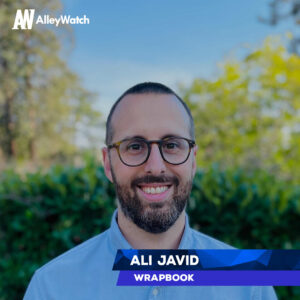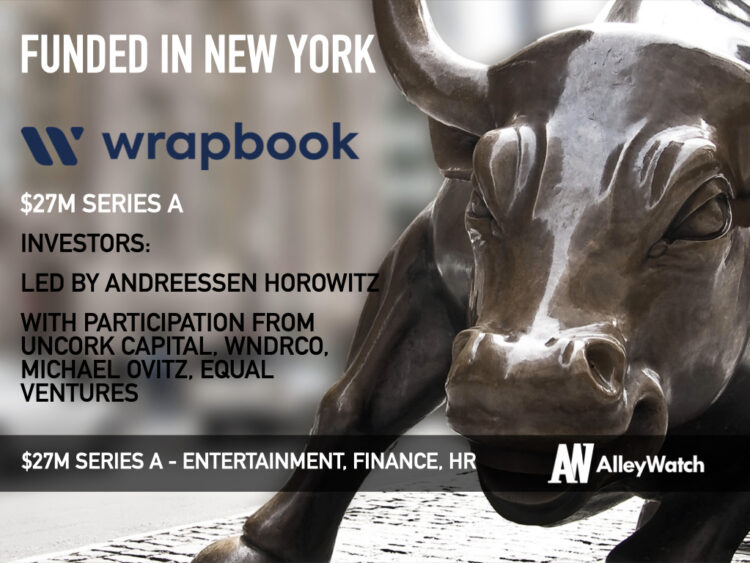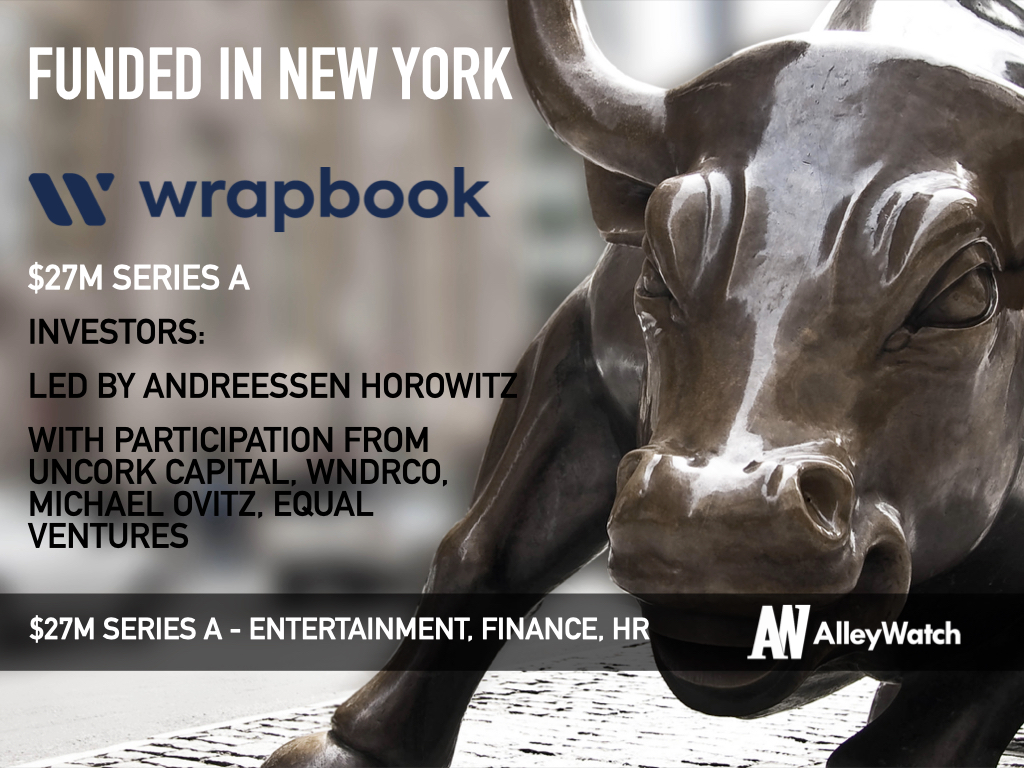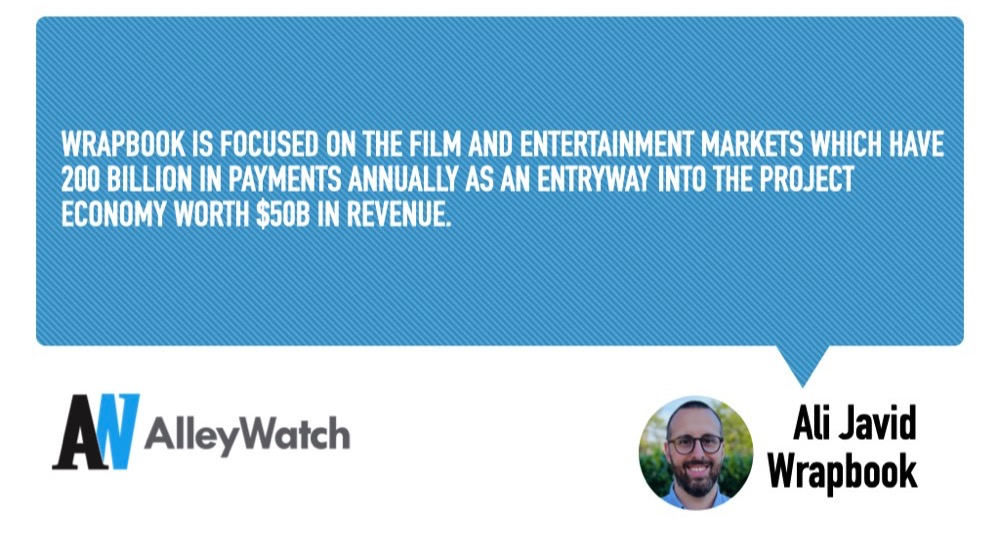1/3 of Americans are now engaged in some sort of freelance or project-based work. The popularity of non-traditional employment and the freelance economy introduces flexibility for both employers and employees but also adds complexities from a compensation and HR administrative standpoint. Wrapbook is a payroll and benefits platform, starting with the entertainment industry, to pay, insure, and even onboard project-based workers. A major TV show can employ hundreds and even thousands of shows; for smaller productions, the numbers can be 50-100. Wrapbook’s platform is designed to tackle the challenge of managing these workforces with its all-in-one suite designed specifically for the industry.
AlleyWatch caught up with CEO and Cofounder Ali Javid to learn more about why the entertainment industry has specialized HR and payroll needs, the company’s solution, experience with the pandemic, and recent funding round, which brings the total funding raised to $30.6M.
Who were your investors and how much did you raise?
Wrapbook raised a $27M Series A. The round was led by Andreessen Horowitz, with participation from Equal Ventures and Uncork Capital, as well as from WndrCo (the investment and holding company led by Jeffrey Katzenberg) and from CAA co-founder Michael Ovitz.
 Tell us about the product or service that Wrapbook offers.
Tell us about the product or service that Wrapbook offers.
Wrapbook is a vertical fintech platform for employers to onboard, pay, and insure project workforces. Employees then have a profile portable between employers. Revenue grew 7x last year amidst a pandemic and 12% of all workers have reused their profile with 2+ employers.
What inspired the start of Wrapbook?
A group of friends got together and built a solution for our friends who were commercial video producers in NYC. We were excited to build a fire extinguisher for our friends’ hair on fire problems.
Over the last three years – I have really gravitated towards helping businesses be successful by saving them time and helping workers get paid compliantly and fast! Our mission is to increase the prosperity of the project economy.
How is Wrapbook different?
Wrapbook is specifically designed for project-based work. That includes unique workspaces, the ability to assign permissions, run multiple payrolls against different projects & 100s of other features unique to this segment of labor and pay management.
What market does Wrapbook target and how big is it?
Wrapbook is focused on the film and entertainment markets which have $200 billion in payments annually as an entryway into the project economy worth $50B in revenue.
What’s your business model?
We provide easy-to-use software to process payroll, charge processing fees for doing so, and sell general liability insurance.
How has COVID-19 impacted the business?
COVID 19 affected the entire entertainment industry and Wrapbook. We saw a decline in projects and payroll when the pandemic hit and then received an incredible amount of interest in a digital-first solution that enables employers and employees to safely gather to work while maintaining safe working conditions.
Our digital onboarding, timecards, and ACH payments save 1,000s of hours of tedious work from producers that used to be done in close quarters, and can now be done in a socially distanced way.
What was the funding process like?
We spent 36 months building the company, 12 months getting to know investors, 2 months preparing to fundraise, and 2 weeks fundraising.
What are the biggest challenges that you faced while raising capital?
The hardest part of fundraising is building a business that investors will fight to invest in.
What factors about your business led your investors to write the check?
VCs are excited about our path to win the project economy, starting in entertainment, with the metrics to back it up.
What are the milestones you plan to achieve in the next six months?
Wrapbook has a product-market fit. What comes next is a deeper investment in our existing team by hiring excellent contributors into our product squads. We believe that an easy-to-use product that keeps our customers compliant when paying their employees will make the biggest impact on the work and lives of our customers.
What advice can you offer companies in New York that do not have a fresh injection of capital in the bank?
Relentlessly focus on building solutions for your customers. Where there is pain, there is an opportunity.
Relentlessly focus on building solutions for your customers. Where there is pain, there is an opportunity.
Where do you see the company going now over the near term?
We have product-market fit, have a strong go-to-market motion, and are now focused on building teams to scale the company. Our aim is to hire a hundred people in the next year.
What’s your coffee shop in the city?
My new favorite find for coffee though is Peckish in Brooklyn.





